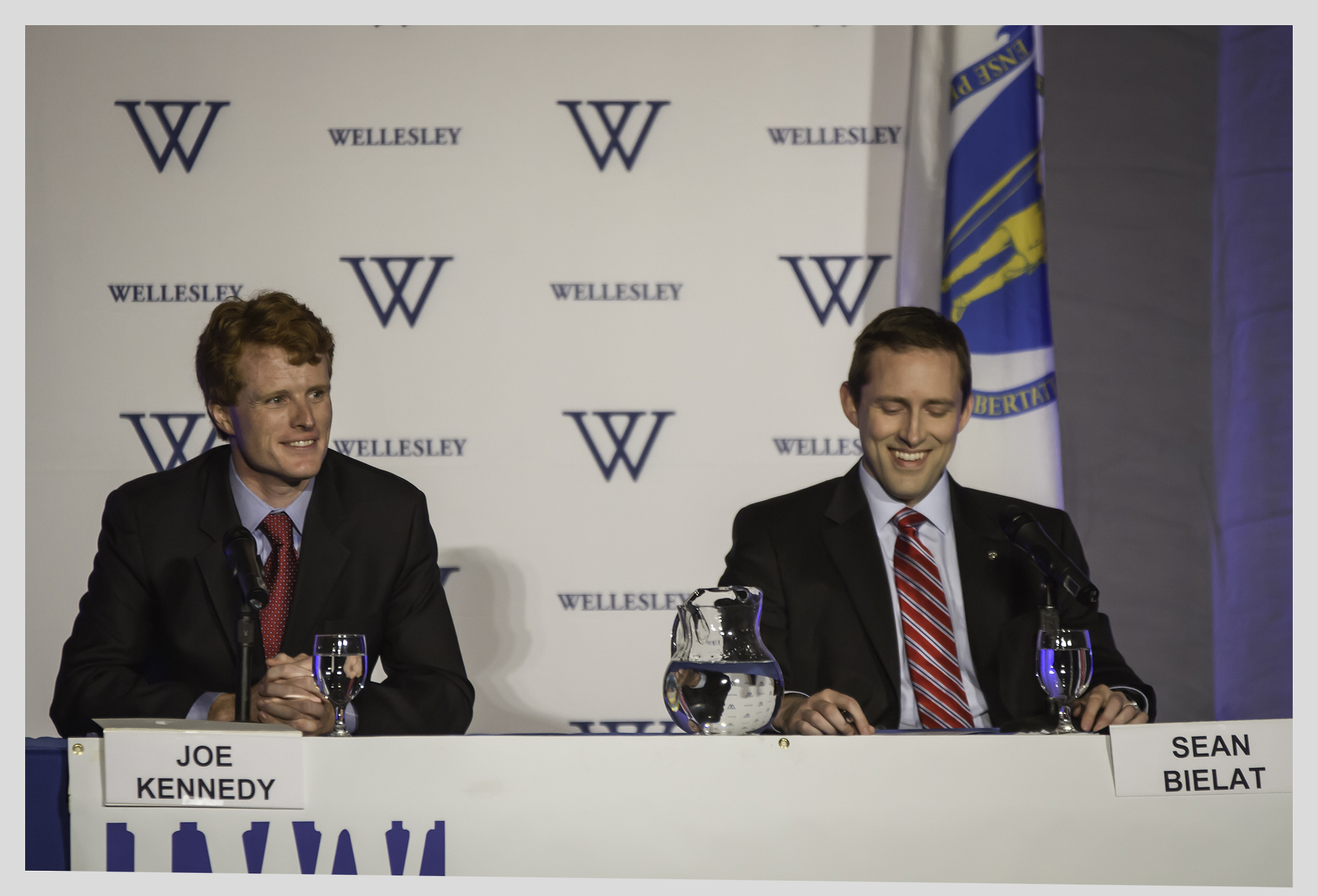
Last night in the Wellesley College Alumnae Hall auditorium, I watched the hall swell with students and local residents with Bielat or "Joe for Congress" stickers, proclaiming their allegiances to the two men vying for Representative Barney Frank's vacated seat in the 4th Congressional District -- Joseph P. Kennedy III (D) and Sean Bielat (R).
An older man, wearing a frown and furrowed eyebrows, came up to the usher next to me and asked her about the seating. She explained that the front half of the auditorium was reserved for college students and, perhaps unexpectedly, high schoolers.
"So the people who can't even vote, they sit up front?" he said, disgruntled. "The ones who can't even vote?"
His question made me think throughout the pre-debate buzz of students chatting to their friends, through the welcome of President H. Kim Bottomly and through the introduction by members of the League of Women Voters, who co-sponsored the debate with Wellesley.
It made me think during the debate itself, where Joe Kennedy III and Sean Bielat argued about tax reform, immigration policy and the role of government. It made me think when Kennedy called for a "fair shot" and Bielat asked for "fiscal discipline."
And this is my answer, not that this gentleman was looking for it:
Yes. The people who can't vote sit up front.
Those people are the high schoolers and in some instances first year college students. They are not much younger than I am.
Like me, they were born into the 1990s prosperity dissolved by the economic collapse of the mid-late 2000s. 9/11 was their first introduction to global politics, as it was for me.
Together, new voters and soon-to-be-voters watched the first African-American man become president of the United States. We saw Osama bin Laden die, the first man most of us were taught to fear.
In lighter moments, we stood in line at midnight to get the last Harry Potter and collectively mourned the death of Hedwig. We adopted Twitter and Facebook as our medium of choice but found that there are dangers as well as delights in the digital revolution.
We saw our parents and aunts and uncles lose their jobs. We watched our recent college grads hang up their diplomas in their old bedrooms and try to get jobs at Starbucks. This is the world as we know it.
My point is not that my peers and I know everything, but precisely that we don't.
We're young. We're new to this. We need all the help we can get in understanding the nuances of tax reform and the challenges of entitlement programs, in learning the difference between politician-speak and the sincere desire to serve, in understanding the courage of principle and the wisdom of compromise.
I have been privileged to attend Wellesley College for the last three years, where our unofficial motto is "women who will make a difference in the world." Wellesley has trained me to become a leader in a world that still resists female leadership. Joe Kennedy and Sean Bielat are running to the U.S. Congress that today boasts only 73 women in the House and 17 in the Senate, out of the 435 and 100 seats available respectively (according to the Center for American Women and Politics). As promising a candidate each may be, neither Kennedy nor Bielat will be improving those statistics.
As we near the 100th anniversary of American women winning the vote, the world as I know it is one still predominately ruled by men. Moderator Jo-Ann Barry said in the beginning of the debate that "Democracy doesn't work if people don't run." If women begin to run -- and be elected -- for office in higher numbers, it will be women like my friends at Wellesley, like my friends in universities across this country, like the high school girls sitting fascinated in the front rows of this debate.
So to the gentleman who was upset about seating arrangements, I ask: Do you want change in America?
Participate in democracy. Attend the debates. Hold up campaign signs. Chant slogans. Send the right man (in this race it will be a man) to Washington.
But pay attention to the people who can't vote, to those who are voting for the first time, to the young women whose great-grandmothers won the right to vote at all. Let them sit up front. Show them how this works; teach them what to look for; guide them as they grow.
They are your real chance to change the nation.
